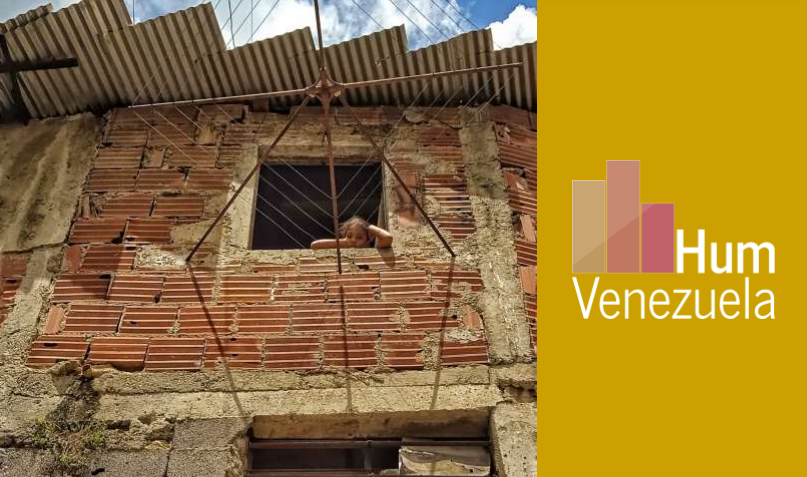The report presented by the United Nations High Commissioner for Human Rights (OHCHR) during the 48th Session of the Human Rights Council refers almost entirely to economic, social, cultural, and environmental rights (ESCERs). Unfortunately, The High Commissioner’s analysis of the situation of ESCERs in Venezuela does so without delving into the context –which was not well documented– and using a methodology that lacks robustness.
Regarding civil and political rights, the report reiterates the information of previous reports and provides new data, especially on the arrests and persecution of human rights defenders and labor leaders, among other serious issues. Concerning the rights of indigenous peoples, the report rightly keeps paying attention to this vulnerable sector. The government was swift in rejecting these allegations. After making these observations, the report goes on with the comments on situation of the ESCERs in Venezuela.
Paragraph 3 indicates that “[t]he report is based on information gathered and analysed by OHCHR, including on the basis of interviews with victims and witnesses, as well as meetings with government officials and civil society organizations. It takes into account official information and data provided by the Government, including through a series of questions transmitted by OHCHR to the Government for the purpose of this report.” In other words, there was no exhaustive investigation conducted directly by the Office of the High Commissioner on the chronology of the events or the causes and effects on the ESCERs.
The report is in line with the previously stated by the UN Rapporteur on Unilateral Sanctions, Ms. Douhan, about the “unilateral coercive measures”. According to the report, the sanctions are to blame for the worsening of the crisis, just like the government claimed in the Preliminary Examination of the Situation in Venezuela II, currently under study by the Prosecutor’s Office of the International Criminal Court (ICC).
The present analysis does not mean that the author directly or indirectly supports the sanctions on certain natural or legal persons. It only aspires to provide an objective view of reality. It does not deny that the sanctions impact the economy either. But it does argue that this impact must be contextualized and take into consideration much more powerful and influential issues, such as the Grand Corruption and the chronic waste of money of recent years.
The report of the OHCHR does not indicate having consulted independent experts of the specific fields addressed in the document, such as economics, law, history, sociology, and political science, at least. Had it done so, the High Commissioner might have learned the exact chronology of events and the causes and the effects on the ESCERs.
No mention is made of the structural and fundamental problems that caused the economic crisis and that have deteriorated the ESCRs, a failed political and legal model. Venezuela has replicated in the last 22 years the ideological pattern and the impoverishing tactics of Marxist governments, such as the USSR and its satellite countries, Mao’s China, Vietnam, Cuba, the German Democratic Republic, etc. The class struggle, expropriations, the dictatorship of the proletariat, militarism, and the planned economy have failed everywhere because they impede all kinds of freedoms and human rights, not only economic and patrimonial ones.
The report fails to identify how state policies have radicalized in the analyzed period (June 1, 2020 – June 30, 2021) in terms of the unrestrained advance on communal laws and the Homeland Plans, in open contradiction with the Constitution and the respect for civil and political rights, as experts and qualified human rights NGOs have warned. Such laws and plans seek to replace the democratic regime with a socialist system. Nor does it detect the events derived from the erosive and unconstitutional action of the Constituent Assembly, which replaced the legislative body and usurped its functions from 2017 to December 2020.
It is worth mentioning the promulgation of the Anti-Blockade Law in October 2020 and its effects on the economy and the ESCERs, a bill that allows the “non-application of legal norms”, which does not make any sense because the law is meant to be applied. In the case they are no longer necessary, laws must be repealed or annulled; otherwise, legal insecurity will rage on, scaring away long-term, job-creating investments. But, the new legislation is very attractive for capitals derived from crime and corruption, which need discretion and prerogatives.
The report does not mention the Grand Corruption that gave place to the bankruptcy of the National Treasury or the high-profile trials currently underway in other jurisdictions for cases of Grand Corruption committed by Venezuelan public officials. The phenomenon of Grand Corruption in Venezuela, the largest in the world in the 21st century, is very well documented and verified by Transparency International [1]. This criminal phenomenon impoverished the entire population and wiped out the middle class. As a result, 96% of the population currently lives in poverty, as identified by the National Survey on Living Conditions (ENCOVI). In contrast, a new economic elite (4%) has been created in Venezuela with clear signs of sudden and inexplicable wealth: luxury cars, real estate, buildings without tenants, casinos, etc.
The report also fails to mention the mismanagement of 1 trillion US dollars in oil revenue; still without any explanation or accountability. The interdependent relation between corruption and human rights violations is very well documented and verified, too. In Venezuela, this link is notorious and flagrant, it does not need proof, but it is not mentioned in the report.
The uncontainable hyperinflation exacerbated by the government and its financial policies is mentioned even less. The serious lack of an adequate methodology is obvious as it does not include this variable as a cause of the deterioration of wages, pensions, and other sources of income. The report only mentions the sanctions as the cause of the aggravation of the crisis. In a paradoxical effect, sanctions are blamed for everything but the national currency is non-existent and only a few have access to US dollars. Since 2008, when we already had the highest inflation on the continent, there have been three currency redenominations and the elimination of 14 zeros from the Venezuelan bolívar; The current hyperinflation had been brewing since then, long before the sanctions.
Regarding the shortage of medicines, nothing is said about the non-payment of foreign exchange debts with pharmaceuticals that amount to over 4 billion US dollars since 2012, which became a reason for their cease of operations in the country and the break of the supply chain, later monopolized by the government and its political allies.
The report does not mention that the financial and oil “unilateral sectoral measures” are the product of the Grand Corruption and the infiltration of Venezuelan ill-gotten money in third countries, as evidenced in the judicial processes opened abroad. Likewise, the sectoral measure regarding the sale of arms to the government seeks to prevent their use against the population. But the report advocates for the elimination of sectoral measures in a decontextualized way.
If the measures were to be eliminated, would we go back to the happy times? No, given that the structural and underlying problems that acted as effective causes of the Venezuelan crisis have taken root and deepened. The variable of sanctions does not affect the former course of the Grand Corruption and mismanagement, as well as the economic, political, legal, militaristic, and authoritarian model imposed in violation of the Constitution. The impoverishing effects on the entire population of the government’s expropriation policy were to take place, with or without sanctions.
The report also fails to mention how the petty corruption in all areas of the State administration and the national geography ended up by increasing in the cost of living, with an impact on the rights of the population: road checkpoints where travelers must bribe the officials to continue their trip; the practice of the irregular reconnection of basic services like phone lines, electricity, cooking gas, etc.; or the use of middlemen to obtain official document procedures. Everything costs money and must be paid in US dollars. Extortion is the rule. All this increases the final price to the consumer.
In short, there is a lot to say about the ESCERs and the impact that the Grand Corruption and the waste of public money have had on them. It is important to reconstruct the historical truth of the events derived from the sanctions, but without losing sight of the context of the structural and underlying variables that are much more powerful and influential. That is the intention of writing this article.
[1] Transparency Venezuela has identified 236 judicial cases across the world related to acts of corruption in Venezuela, of which 114 involve the use of 52 billion dollars in total. Available https://www.bbc.com/mundo/noticias-america-latina-57081595
Translated by José Rafael Medina




